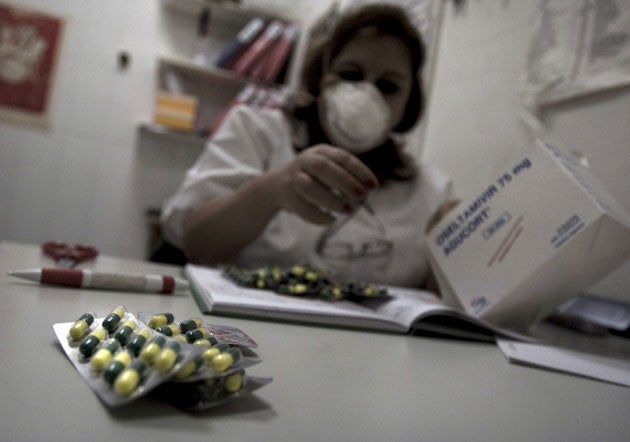UK swine flu cases to soar, but deaths 'will remain rare'
Chief Medical Officer seeks to calm public fears following death of first 'healthy' person from virus

Britain can expect an "explosion" in swine flu cases this winter, but deaths among healthy people will remain rare – unless the virus mutates or mixes with another virus, the Chief Medical Officer said yesterday.
Sir Liam Donaldson tried to calm public fears after the first "healthy" person died from the virus on Friday. The victim – who has not been named – was the 15th confirmed H1N1 death in Britain, but the first who was otherwise healthy.
The worst, but least likely, scenario is that the current virus will mix with another such as bird flu and re-emerge as a much deadlier strain this winter, according to Sir Liam in an interview on Radio 4's Today programme yesterday. But, based on three previous 20th century pandemics, it is much more likely that deaths will remain rare and mostly confined to vulnerable groups such as elderly people and those with existing medical conditions.
Sir Liam insisted the NHS is ready to cope with the expected 100,000 new cases a day predicted for the end of the summer, regardless of whether the virus mutates or not.
He said: "This death was a tragic event for the family concerned, but this will not be a common occurrence unless the virus changes.
"We certainly have got enough Tamiflu and we will be one of the first countries to get the new vaccine, so we should be able to start using it for vulnerable groups in the autumn."
Tens of thousands of people have been infected in the past two months and Britain has the third highest number of reported cases in the world after Mexico and the United States.
The rates of infection in London and the West Midlands are much higher than anywhere else in the country, probably reflecting where the virus first landed from the US or Mexico, according to Professor Steve Field, chairman of the Royal College of General Practitioners.
Professor Field said: "I think the surprise is that it hasn't spread quicker, and though the second wave is likely to be worse, there is a question mark over whether we should keep giving Tamiflu to healthy adults for what has turned out to be a relatively mild virus."
Worryingly, but not unexpectedly, three Tamiflu-resistant organisms have already been detected in different parts of the world but were confined to one person in each case. This means there is no evidence of wider resistance to the drug, but continued national and international surveillance is essential.
The impact of the flu on world economies, which are already under pressure from the global recession, has started to cause concern as countries in the southern hemisphere progress through winter.
School closures and a high infection rate have led to high levels of absenteeism at work in Argentina, as parents stay at home, costing the economy millions of pounds already, according to economists. Restaurants, shopping centres and theatres are experiencing a marked decline in sales as people follow government advice and stay at home. Similar advice in the UK cannot be ruled out this winter.
Swine Flu in numbers
335 people are currently in hospital with swine flu in Britain
135 countries have confirmed cases of the virus
10% of vaccines should be donated to poor countries
1/3 of the world's population contracted Spanish influenza in 1918
1m people died in the last flu pandemic in 1968
Join our commenting forum
Join thought-provoking conversations, follow other Independent readers and see their replies
Comments